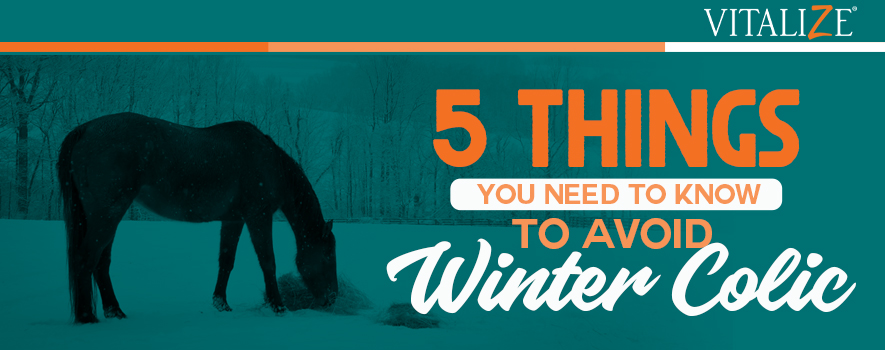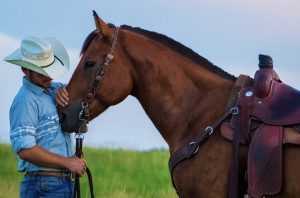
Winter is right around the corner, which only means a few things for horse owners: indoor lessons, blanketing, hand warmers, and colic. Colic is known to be more frequent in the winter months primarily because of a decrease in water intake from our animals. Horses usually drink nearly 5-12 gallons of water per day. However, in the winter, they tend to cut back on their water intake. When your horse drinks less water, digestion can be affected due to a lack of moisture in the gut, which can cause feed to get stuck in the pelvic flexure of the colon, creating a problem known as impaction colic. Here are our top five things you need to know to avoid colic this winter:
1. Provide clean, fresh, warm water 24/7
Horses can be finicky, and they will always tattle on you if you forget to clean their water buckets. They also prefer water that is between 45-65 degrees F. Be sure to provide heated water buckets or a water heater for outdoor tanks to prevent the water from freezing and encourage more drinking. If you unplug the heaters overnight when horses come inside, be sure to break the ice in the morning. While this may seem like a given, it is the most crucial part of preventing colic in the winter months. Make sure to remind your staff as well!
2. Supplement an electrolyte
You can lead a horse to clean, fresh, warm water, but we can’t make them drink. If your horse’s water intake seems to be declining, feed an electrolyte at mealtime. This will help your horse feel thirsty, thus increasing its need to drink more water in the winter months.
3. Free-choice forage, fed on the ground
Now, more than ever, is the time to make sure your horse has free-choice hay. Because horses are grazing animals, in the wild they will roam at all hours of the day, eating as they go. If you own a 4-legged forage vacuum that considers free-choice the ultimate eating challenge, give hay as many times a day as is possible! As our grass dies off and horses spend more time indoors due to weather, it is crucial to make sure their digestion systems are actively working, as if they were in the wild. It is at times of empty stomachs when they will be more likely to show colic symptoms. Additionally, feeding hay on the ground is important to let their sinuses drain. If fed in an above hay feeder, horses can develop respiratory infections.
4. Turnout and Exercise
Although the temperatures may be dropping, turnout and exercise are even more important to help prevent colic. Having time to move around each day helps the digestive system stay healthy. If they cannot go out due to weather, hand walking each day will not only help with this, but will also increase their morale and overall attitude.
When everyday preventions are not enough, Vitalize® Equine Gel has your back (and your gut!). When administered at the first signs of colic, it has been known to reverse digestive upset and colic symptoms. The gel contains Amaferm®, a natural prebiotic that works to increase the good bugs in the gut, MOS, which decreases the bad bugs in the gut, antioxidants, electrolytes, and vitamins known to be depleted during stress.
Do you have yours in your tack trunk? Get it today at your local dealer or vitalizeeq.com.
If you own a horse, chances are you have been affected by colic. Although it can be scary, we can only do our best to help prevent it by following these five barn management tips.

